“I like to wake up early and begin with my yoga and meditation practice,” Amanda Perera tells us. “This helps to prepare for the day. I find this hour I take to myself helps me to face the inevitable issues that arise when you’re running your own space and business.”
Which goes to show—running a business in paradise still comes with the stresses of running a business, but you're only a few deep mindful breaths away from getting back into balance. We first met Amanda Perera a few years ago on a surfing trip in Sri Lanka and were captivated by her family’s immigrant story of being born in Sri Lanka and raised in Milan, Italy where her parents fled during the Sri Lanka civil war.

Amanda wears the Keala Leggings in Stars.
She and her parents returned to Arugam Bay (where Amanda vacationed as a child) on the eastern tip of the tear-dropped island to start a new chapter. Since opening The Bay Vista Hotel, an attached Café, and Deep Sea surf shop, it’s been a winding, yet rewarding road as they adapt to sustainable practices and more tourists (that aren’t deterred by the 8-hour plus drive across the country to get there) discover the dreamy point break.
From the local women surfing scene to how their community manages tourist waste, we caught up with Amanda to find out more about what it’s like to run a café and surf shop in Sri Lanka.

Amanda wears the Keala Leggings in Stars.
Tell us more about The Bay Vista Hotel’s restaurant, rooftop café, and Deep Sea surf shop. What’s a typical day of work look like for you?
My mum, Kanthi and I head to the market every morning to source produce for the restaurant and rooftop cafe. For us, personally selecting what goes on our plates is a matter of importance. We strongly believe in supporting local small businesses and purchasing direct from farmers at the market in this area.
Pottuvil, the main town, is 4 km away and the variety of produce is limited. It was challenging to create a unique menu at the beginning but working out how to keep it interesting using local spices and herbs taught me quite a bit and can be engrossing. The rooftop cafe opens at 10:30AM and has been in operation for three years now. I’m still very much hands-on in the kitchen. This is to ensure quality control but also, I really enjoy cooking. The most rewarding thing is seeing empty plates coming back to the kitchen and guests leaving saying that it was the best meal they had in Sri Lanka. 

Once I'm done at the cafe I head to the new project that I started this year with my boyfriend, Milan. We opened a concept store and tailor-made surf school called Deep Sea. The products in the shop are sustainable and eco-friendly. We have a wide range of goods made in Sri Lanka (skincare, hygiene products, plant-based powders etc...) and imported surf accessories (as the quality of surfing products made locally is not quite at standard yet). We work in small quantities in order to reduce excessive consumption and with items that last. We also use rejected fabrics, second hand sarees, organic materials and natural dyes for our own clothing brand. It’s not an easy process, it requires a lot of patience and time but then when you see then end result is worth it.

What is it like working with your family?
I enjoy working with family—there's no one I could trust more for honest advice.
We, of course, have our arguments and disagreements but minor ones that we overcome easily. We each have our roles and stick to those but do consult each other when needed.
How would you describe the community and culture of Arugam Bay?
Arugam Bay is amazing. I love it here! The community is strong and a mix of religions, ethnicities, and countries. Of course, since money started rolling in and new properties come along, the competition is high and with that jealousy arises.
We work a lot with the communities here specifically providing communal water systems in areas where water is lacking due to the arid environment. Two such systems have been built for now, with plans for more in the future. We have also donated many water tanks to families. The water supply from the government is just one hour a day, which honestly translates to nothing. The number of problems the community here faces is many—lack of power supply, insufficient healthcare and unstructured educational systems are but a few—all with little to no support from the government.
Luckily everyone who has businesses here in Arugam Bay reinvests in the communities and giving back to the families in need, which is great.


Amanda wears the Kirra One Piece in Stars.
How have you seen the community of women’s surfing in Arugam develop?
There is the recently formed Arugam Bay Girls Surf Club in which local girls from villages get together and surf. They are also involved in social responsibility activities such as beach cleaning and learning to give surf lessons in the future, so this is a big step towards the acceptance of girls surfing.
There are also more and more girls from the capital Colombo or who grew up abroad surfing—that’s definitely contributing in making surfing more appealing to other girls.
I’ve never been a person with a big crew of friends. I always had that one or two who I’m super close to but have a good relationship with everyone, usually. All my besties are not in Arugam Bay—and some are not even in Sri Lanka. It’s a bit hard to find authentic friends here as it is such a transitory place but each person that brings something positive is for sure a treasure. 
Have you seen surf culture and global tourism affect the culture and community of those that are from Arugam Bay or Sri Lanka?
Absolutely. People come to Sri Lanka because it’s stunning and because the people are kind and welcoming. They always smile and offer you a cup of tea, regardless of if they know you or not.
I do see a change in this lately though, on both sides. We now get tourists looking for bargains and taking advantage of people’s generosity. As an inevitable reaction, people in Sri Lanka are learning to be less kind and more money-minded. Tourism is essential for Sri Lanka—more than 50% make a living from it—so it has for sure improved the living conditions of many and contributed to the livelihood of many. More girls and boys are working in cafes, restaurants, and shops learning new skills and becoming financially stable.
Surf culture is changing in general, especially now that surfing is a sport you can make money from. The typical laid-back vibe is shifting. The local surfers here are more about the brand rather than the fun in surfing. It’s all about being sponsored or being team riders of some brand, hotel, cafe, shop. There is no more real surf community but more competitiveness of who has more followers on Instagram, who has more professional photos, more branded boards etc… which in my opinion is more damaging than beneficial. I feel it’s losing its essence.
But there are also many positive things such as the opportunity for a local surfer to compete abroad, receiving professional training in order to be at an international level, learning about safety and gaining insight in how start-up you own business, to name a few. It’s up to each of us what to take and what to keep aside.

In a remote area, what is the infrastructure in your area to manage natural resources and waste? Tell us about your journey to being mindful of running a sustainable business.
In the last few years, there has been a big feeling of responsibility towards the environment amongst hoteliers, tourists, and locals. We all know how harmful we can be to nature with our businesses. Let’s face it: the more crowds, the more consumption, wastage and garbage and that is exactly what is happening in Arugam Bay.
We have finally received approval to have our water filtering system that will provide potable water to the whole hotel so we can cut down 100% on plastic bottles and guests will not need to purchase plastic bottles from outside.
We use solar panels for hot water and the basic electricity provided; which is so good for the environment and for the pocket so surely an investment that every business should consider. We have a water filtering system for wastewater that is redirected to water plants.
Unfortunately, small guest houses have no proper wastewater systems and mostly goes to the ocean but the government is now being very strict and getting all business to follow environmental rules that were ignored previously.
Thumbs up for Wasteless Arugam Bay and Rice & Carry for being hands-on with recycling programs to reduce the plastic pollution and education both the local community and tourists on a daily basis.
When you’re not working, what are some ways that you spend your time off?
To be honest, during the Arugam Bay season I rarely get time off. Those four months are very intense but after that is holiday mode for the rest of the year. But when I do have time, yoga and meditation is how I prefer to spend the majority of my day—and surfing, of course! Being out in the ocean is fun and always makes me feel like a child. I also genuinely enjoy spending quality time with family and friends and gardening in our new house. Simple pleasures.

Reflecting on the past few years since you’ve opened the hotel, what were the high and low points? What mistakes did you make that you learned from?
I definitely wished we had kept environmental concerns more in mind when building the Hotel. I think we were not well exposed to how important it was back then so definitely a learning process and now a priority in every decision that we take.
When opening the Deep Sea shop, I put all of what was not previously considered into it and that really made me feel like you should never lose hope and commitment as long as you learn from your mistakes. I’m glad that I was surrounded by people that took the environment as a priority and learned from them. Overall what I learned from running your own business is if you do something with genuine intentions then it can’t go wrong. You make mistakes and learn from them, you face challenges and overcome them, and always take a break to reflect and pause. Always be honest and respect the people you are working with and the surroundings.
The high point is that I'm personally involved in the activity so I know exactly what’s needed for the customers and also have a direct relationship with my team/staff.

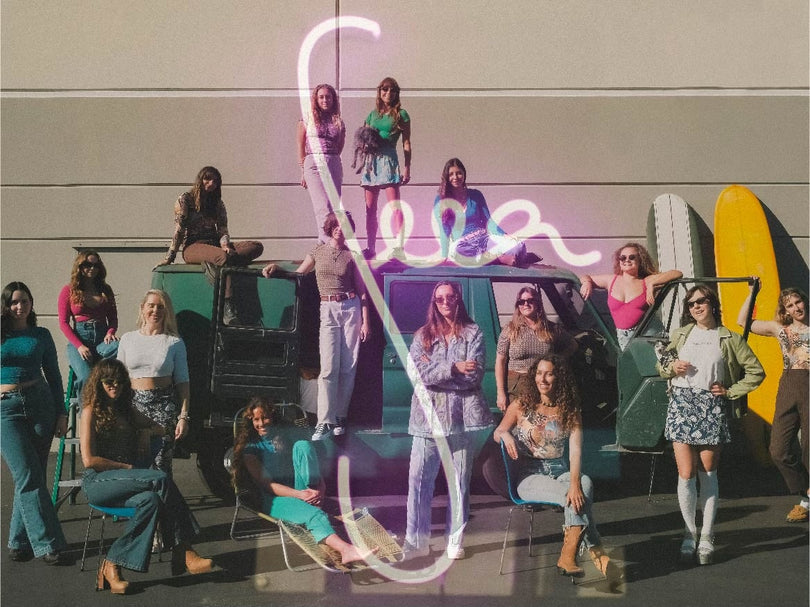
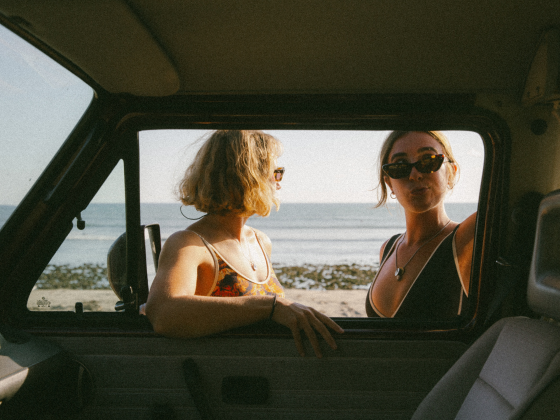
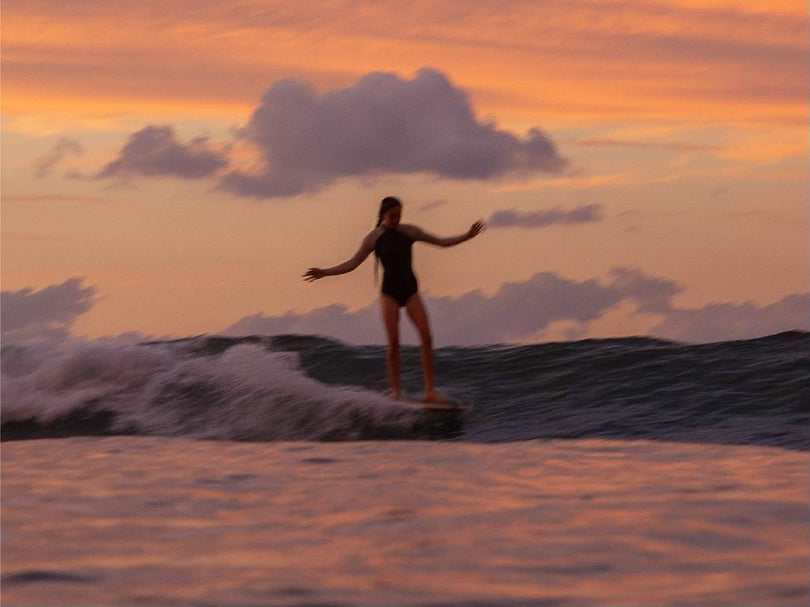
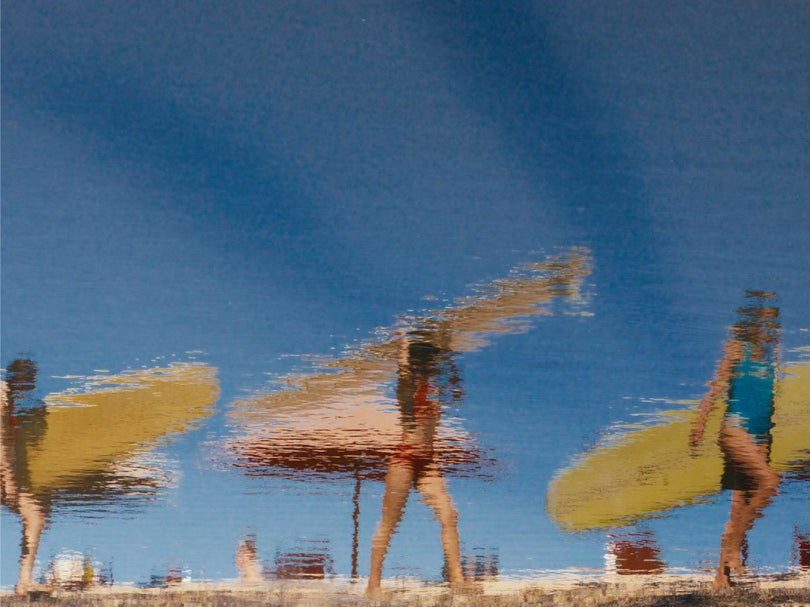
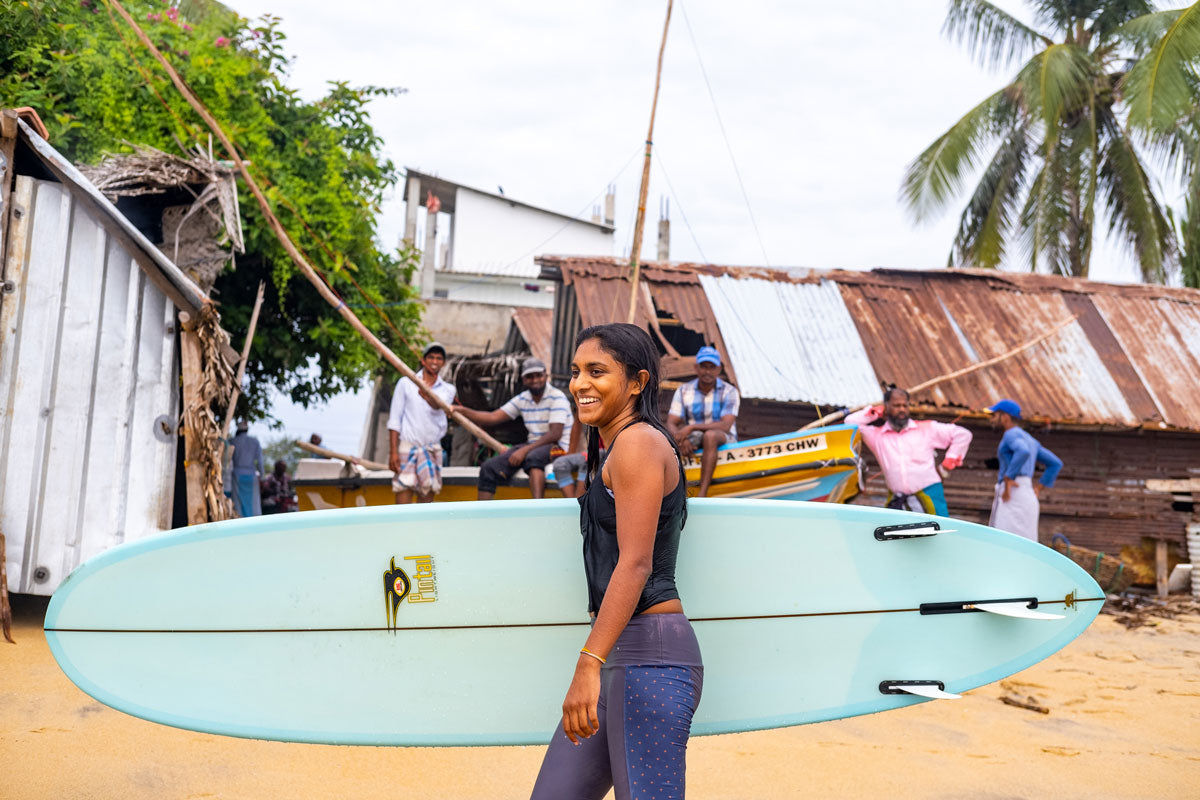
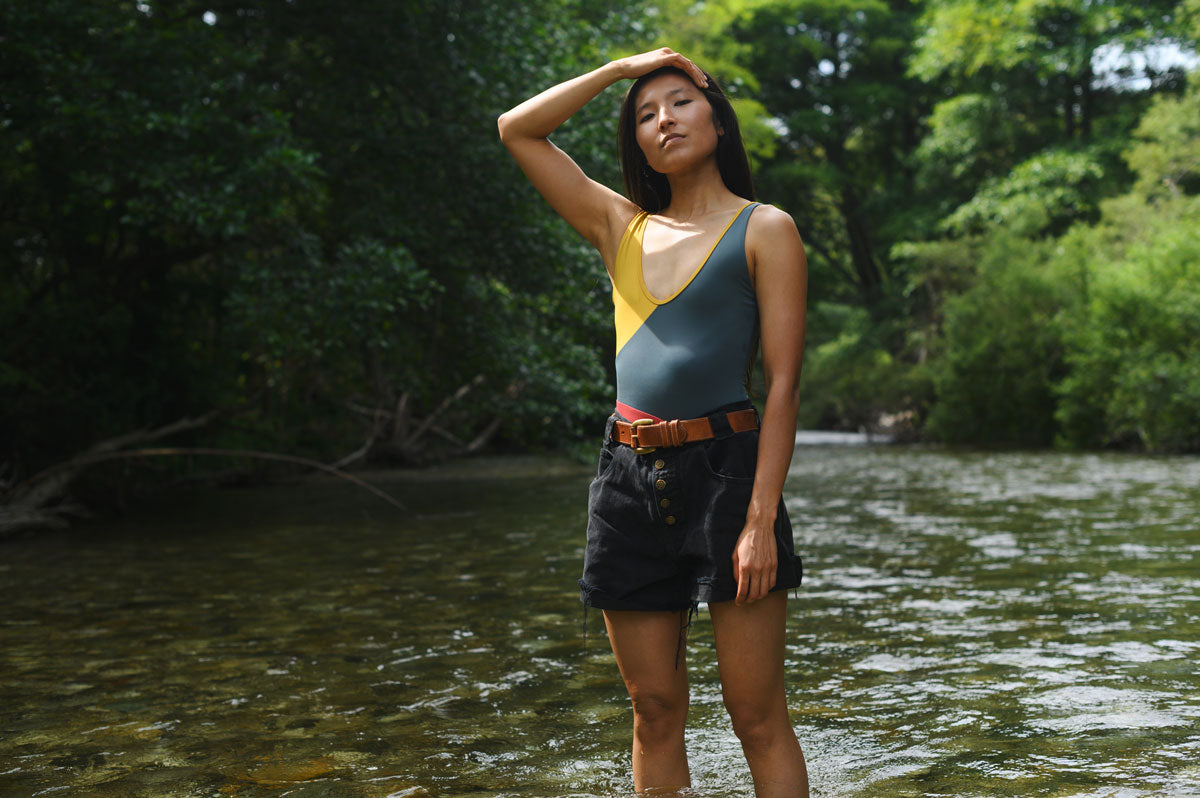
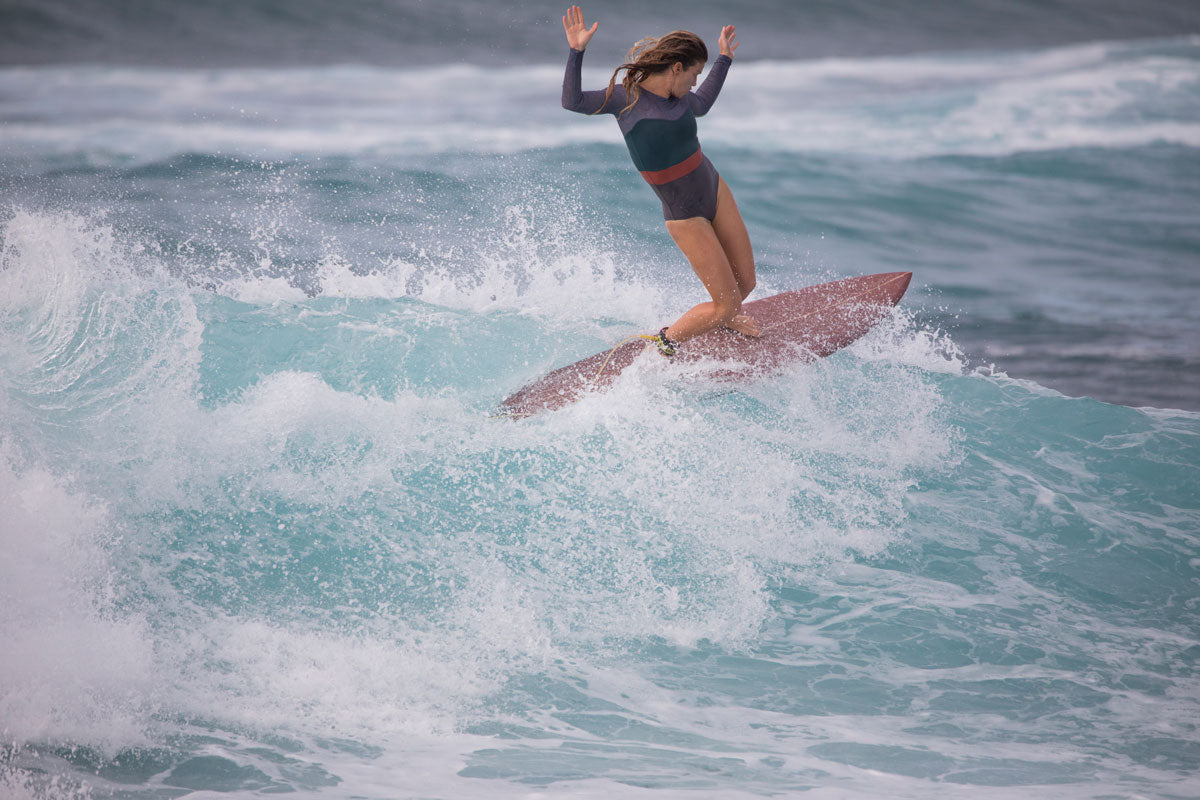
2 comments
Robyn
Love hearing stories of commitment to sustainable business and seeing people living from their heart. Against all their challenges, hearing the mistakes transferring into values of hope and commitment are encouraging. Thankyou
Love hearing stories of commitment to sustainable business and seeing people living from their heart. Against all their challenges, hearing the mistakes transferring into values of hope and commitment are encouraging. Thankyou
dawn
congratulations Amanda on your business & your amazing community efforts. i was in Sri Lanka in 1976 and it IS stunningly beautiful. people were so friendly. at first i was confused because when i asked for something the people shook their heads back and forth (which in western culture means “no” / but they were saying “yes,of course”. always YES!! i’d love to return and visit your shop in arugam bay!
congratulations Amanda on your business & your amazing community efforts. i was in Sri Lanka in 1976 and it IS stunningly beautiful. people were so friendly. at first i was confused because when i asked for something the people shook their heads back and forth (which in western culture means “no” / but they were saying “yes,of course”. always YES!! i’d love to return and visit your shop in arugam bay!